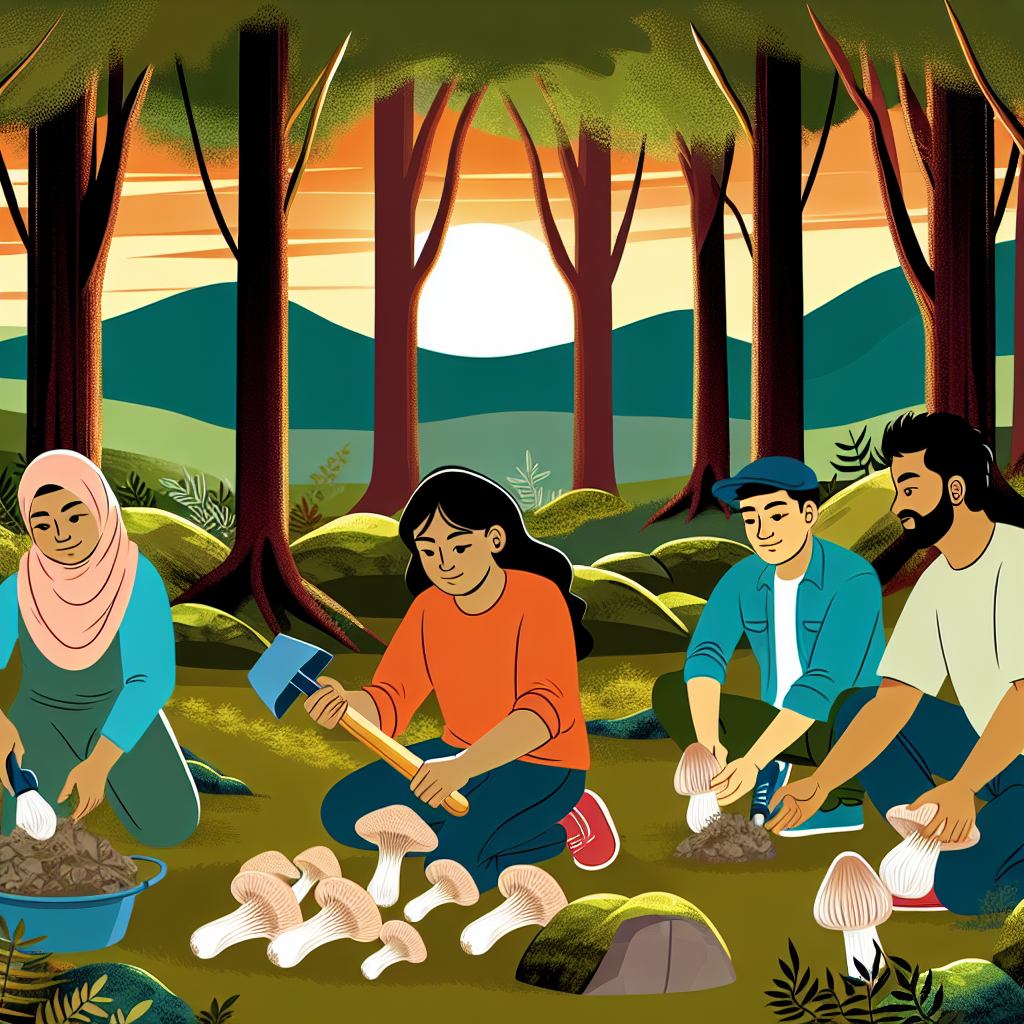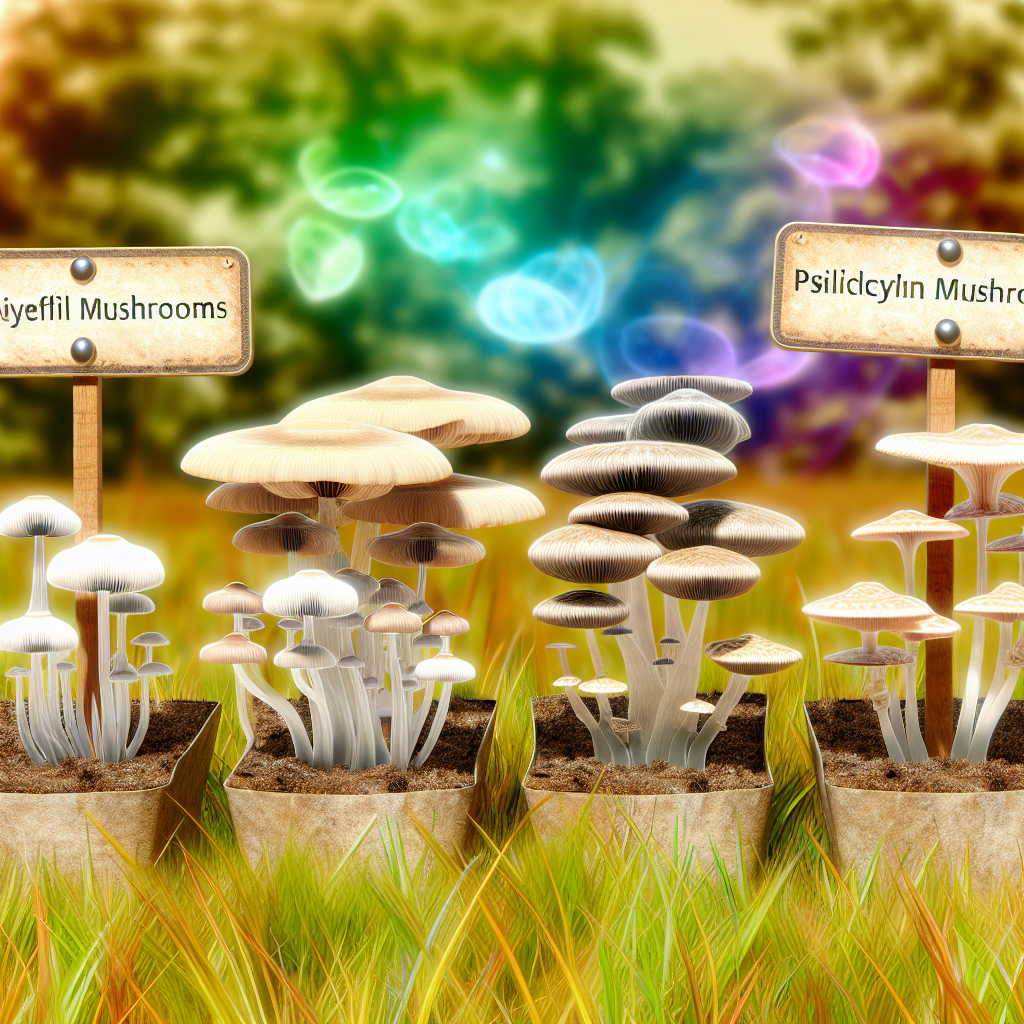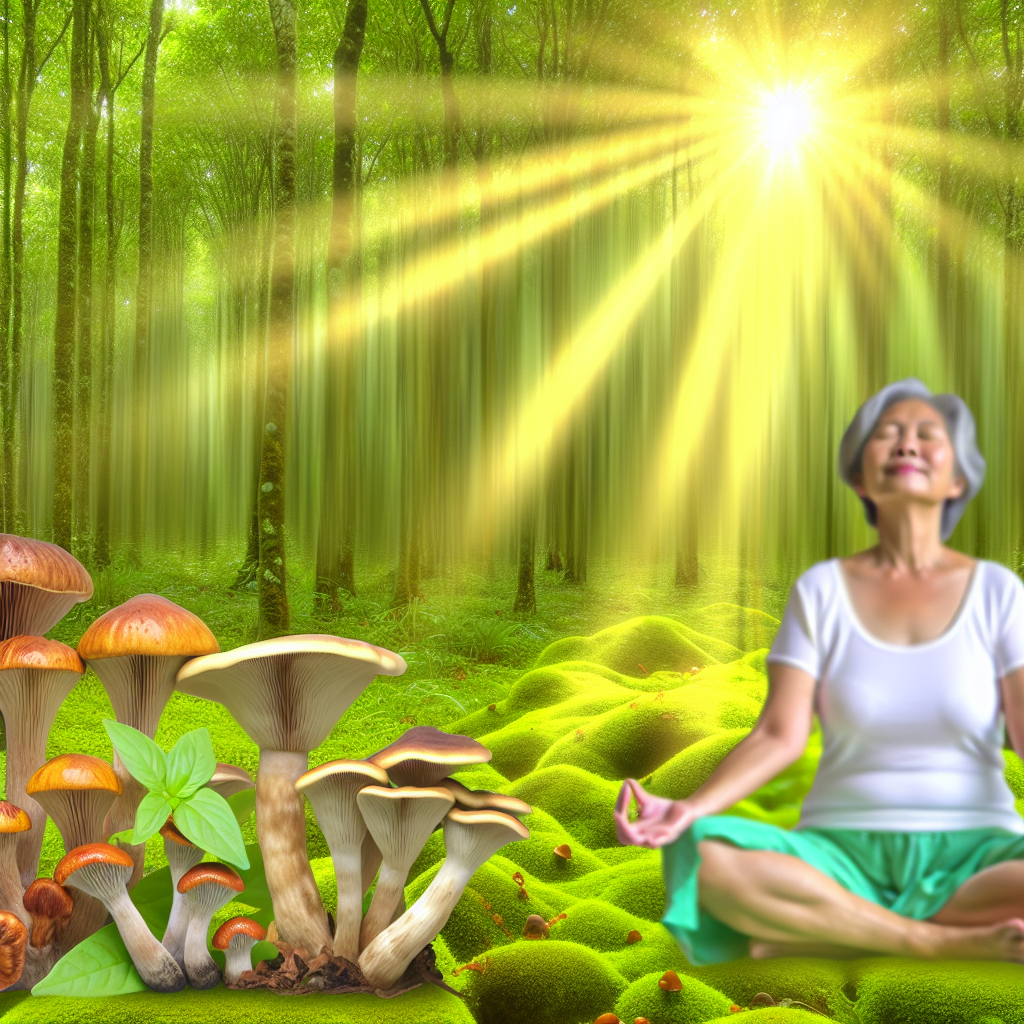Here is the blog post with the requested changes:
Foraging Ethics and Conservation: Sustainable Wild Mushroom Harvesting Practices
Discover the Delicate Balance: Why Ethical Mushroom Foraging Matters
In recent years, wild mushroom foraging has seen a significant uptick in popularity. From culinary enthusiasts searching for gourmet fungi like chanterelles and morels, to wellness advocates intrigued by the therapeutic uses of reishi and lion’s mane, the forest floor has become a treasure trove for health-conscious adventurers. However, with the rise in foraging interest also comes an urgent need to understand and promote ethical and sustainable harvesting practices.
Mushrooms play a critical ecological role. As decomposers, they break down organic material, recycle nutrients, and form symbiotic relationships with trees and plants. Many species, such as mycorrhizal fungi, are deeply integrated into forest ecosystems. Disrupting these relationships—intentionally or accidentally—can lead to significant ecological imbalance.
Foragers often overlook that mushroom fruiting bodies are just one part of a larger organism. The majority of a mushroom’s life cycle occurs underground or within decaying logs, and overharvesting fruiting bodies can stress the mycelium and reduce future growth. Worse, trampling through sensitive habitats or using improper harvesting tools can damage the delicate ecosystems mushrooms call home.
Ethical foraging is not just about picking mushrooms responsibly; it’s about understanding the importance of conservation and working in harmony with nature. It calls on foragers to develop a deep sense of stewardship for the ecosystems they explore, adhering to guidelines that protect delicate mycorrhizal networks and ensure that fungi are available for future generations.
Additionally, laws surrounding wild mushroom foraging vary widely based on location. In some areas, foraging without a permit can result in fines—or worse, ecologically damaging consequences. Being informed legally, ethically, and ecologically is therefore essential for anyone stepping into the woods with a basket in hand.
As we explore the world of sustainable foraging, understanding the balance between human benefit and environmental protection is crucial. Whether you’re a seasoned mycophile or just beginning your fungi journey, ethical foraging practices help support both biodiversity and the longevity of mushroom populations in the wild.
Science Meets Tradition: The Keys to Sustainable Fungal Foraging
The science behind sustainable mushroom harvesting is beginning to take root in academic and ecological discourse. Recent studies underscore the importance of balance between foraging for human use and conserving fungal biodiversity.
A 2022 study published in the journal Fungal Ecology examined the impact of commercial and recreational foraging on wild mushroom populations across parts of Central Europe. The researchers found that moderate, rotational harvesting of non-endangered species did not significantly reduce overall mushroom biomass or diversity when foragers complied with responsible practices—such as cutting instead of uprooting and limiting harvest quantities. However, in areas where mushrooms were overharvested, species diversity and the frequency of fruiting bodies declined rapidly over a five-year period, illustrating the need for tight regulations and community education. [Read the full study](https://www.sciencedirect.com/journal/fungal-ecology)
Another pivotal study conducted by the University of Oregon’s Department of Biology highlighted how improper harvesting techniques, such as tearing out entire clusters or digging deep into mycelium-rich soils, disrupt microbial habitats and reduce regrowth potential. They found that human foot traffic alone, when not managed, compacts forest soil—decreasing oxygen flow to fungal networks. This physical disturbance can also reduce symbiotic efficiency between fungi and host trees—an important relationship for forest health. [Learn more](https://cas.uoregon.edu/biology)
Moreover, several indigenous communities across North America and Siberia have long practiced sustainable foraging, guided by traditional ecological knowledge (TEK). TEK-based practices emphasize respecting the spirit of the plant, harvesting only what is needed, and giving thanks—principles that mirror modern conservation ethics. Science is beginning to take note of how such ancestral knowledge systems can help modern foragers adopt more sustainable behaviors.
The medical and holistic wellness community also plays a role. As the demand for medicinal mushrooms such as turkey tail, chaga, and lion’s mane increases, some researchers worry about overharvesting from natural habitats. In response, sustainable cultivation practices and lab-based propagation are being explored and promoted, helping reduce the pressure on wild populations. [PubMed reference](https://pubmed.ncbi.nlm.nih.gov/30915638/)
Ultimately, integrating scientific, cultural, and ecological frameworks reinforces the critical importance of conservation-minded foraging. Research, education, and respect for nature remain our most important tools in preserving the delicate balance of our forest ecosystems.
Harvest with Heart: Make Each Foraging Trip Count
Sustainable wild mushroom foraging is a multifaceted endeavor, blending science, ethics, and a deep respect for nature. By adopting eco-conscious practices, actively learning about fungi and their ecosystems, and adhering to established guidelines and legal regulations, foragers can support biodiversity while enjoying the profound benefits mushrooms offer. The biological richness of our forests depends on our stewardship—each ethical harvesting decision contributes to conserving these vital organisms for future generations. Whether for food, medicine, or spiritual exploration, foraging done right sustains not just individual health, but the health of the planet as well.
Further Reading & Resources
– 🧪 Fungal Ecology: Impacts of Recreational and Commercial Mushroom Harvesting
[https://www.sciencedirect.com/journal/fungal-ecology](https://www.sciencedirect.com/journal/fungal-ecology)
– 🌱 University of Oregon Department of Biology – Mycelium Disturbance Studies
[https://cas.uoregon.edu/biology](https://cas.uoregon.edu/biology)
– 🍄 U.S. National Library of Medicine – The Medicinal Potential of Wild Mushroom Species
[https://pubmed.ncbi.nlm.nih.gov/30915638/](https://pubmed.ncbi.nlm.nih.gov/30915638/)
– 🌿 United Plant Savers – Guidance on Ethical Wild Harvesting
[https://unitedplantsavers.org/guidelines-for-wild-harvesting/](https://unitedplantsavers.org/guidelines-for-wild-harvesting/)
– 🍂 North American Mycological Association – Foraging Ethics and Conservation
[https://namyco.org/ethical_guidelines.php](https://namyco.org/ethical_guidelines.php)
Concise Summary:
This blog post explores the importance of ethical and sustainable foraging practices for wild mushrooms. It discusses the critical ecological role of mushrooms, the need to protect delicate fungal ecosystems, and the growing body of scientific research supporting conservation-minded foraging. The post also highlights traditional ecological knowledge, the role of the medical/wellness community, and the multifaceted approach required to ensure the long-term health of mushroom populations in the wild.

Dominic E. is a passionate filmmaker navigating the exciting intersection of art and science. By day, he delves into the complexities of the human body as a full-time medical writer, meticulously translating intricate medical concepts into accessible and engaging narratives. By night, he explores the boundless realm of cinematic storytelling, crafting narratives that evoke emotion and challenge perspectives. Film Student and Full-time Medical Writer for ContentVendor.com



